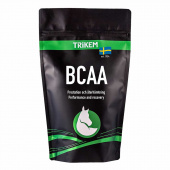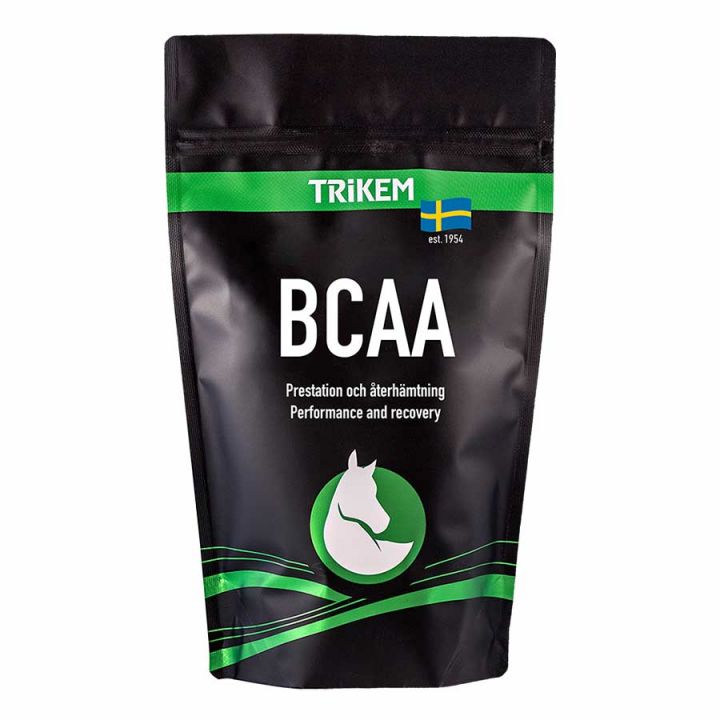BCAA (Branched Chain Amino Acids) is an abbreviation for Branched Chain Amino Acids and consists of the amino acids leucine, isoleucine, and valine. These amino acids cannot be produced by the horse's own body and must therefore be provided via the diet. Amino acids are the constituents of protein, protein in its broken-down form. Amino acids can be absorbed very quickly and directly used in the process of repairing and building muscle mass.
By supplementing with BCAA during training, the horse's mental focus can improve, and the perceived effort can be reduced. The horse is perceived as more alert and recovers more quickly to be ready for the next training session. Research shows that BCAA can reduce muscle soreness, where it is believed that leucine, in particular, found in BCAA, accelerates muscular recovery by triggering muscle protein synthesis and protein building.
The branched-chain amino acids function as a catalyst for muscle protein synthesis and muscle development. The body has receptors and the ability to build muscles; what is needed are the right signals, which can come from training or by increasing blood levels of the amino acid leucine - which is precisely what happens after taking BCAA.
Which horses is BCAA suitable for?
When there is a need for improved recovery and to counteract muscle soreness. Given to preserve muscle mass during intense training and promote new muscle development. Can be given as a daily supplement or as a course during tougher periods of training and/or competitions.
Give the horse BCAA to promote;
- Recovery
- Muscle growth
- Mental energy during training and competition
Dosage
6 ml per 100 kg body weight per day
Example large horse (500kg) = 30 ml/day
Example pony (250kg) = 15 ml/day
No competition withdrawal period

